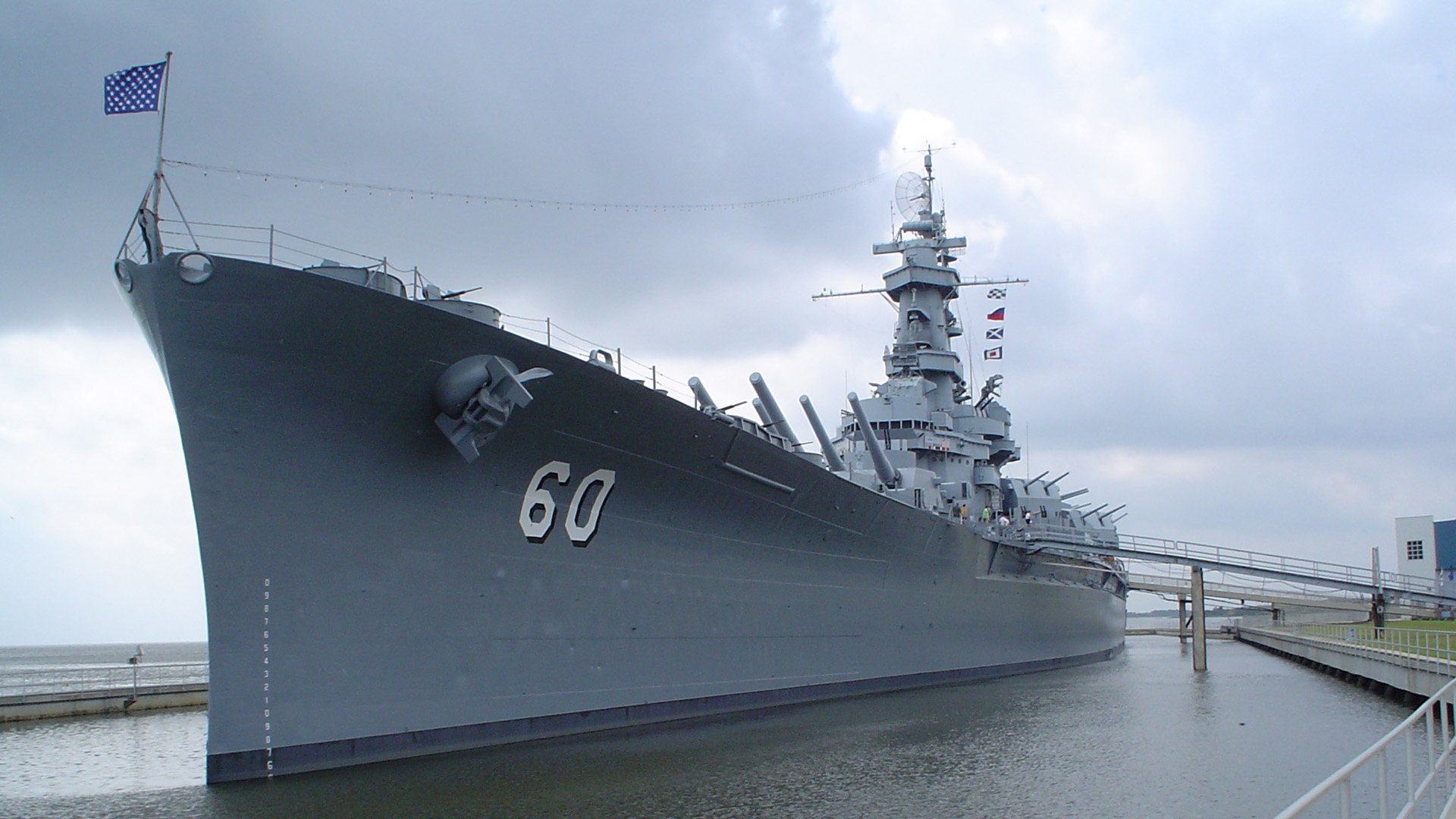
A bow shot of the USS Alabama (BB-60) located in Mobile, Alabama, USA. Wikimedia Commons photo.
The USS Alabama is the nuclear submarine famously featured in the 1995 Cold War action-thriller Crimson Tide. Starring Denzel Washington and Gene Hackman, the film follows a submarine crew dispatched on patrol with orders to deliver a preemptive nuclear strike against Russia if it instigates a war with the United States. While the story immerses audiences in a world rarely seen by the general public, it is mostly a work of historical fiction.
Although there is a real USS Alabama submarine (SSBN 731), its exploits at sea, though admirable, probably wouldn’t make for a very compelling movie. There is, however, a warship called the USS Alabama, and its story is just as captivating as anything you’d see on the big screen. Even better, it’s true.
The USS Alabama (BB 60) is a retired South Dakota-class fast battleship that served with the US Navy during World War II. The Alabama, or “Mighty A” as it was known to crew, engaged in several key battles to overtake Japanese-held islands in the Pacific. After the war, the Alabama was set to be scrapped for parts, but it was spared that fate when a group of Alabamians from Mobile acquired the ship’s rights.
Thanks to the group’s efforts, members of the public can now tour the Alabama and learn about her glory days as the so-called “Heroine of the Pacific.” But does this old ship really warrant the hype? We believe so.
Related: 5 of the Biggest Naval Battles in Recent History
When Did the USS Alabama Enter and Leave Service?
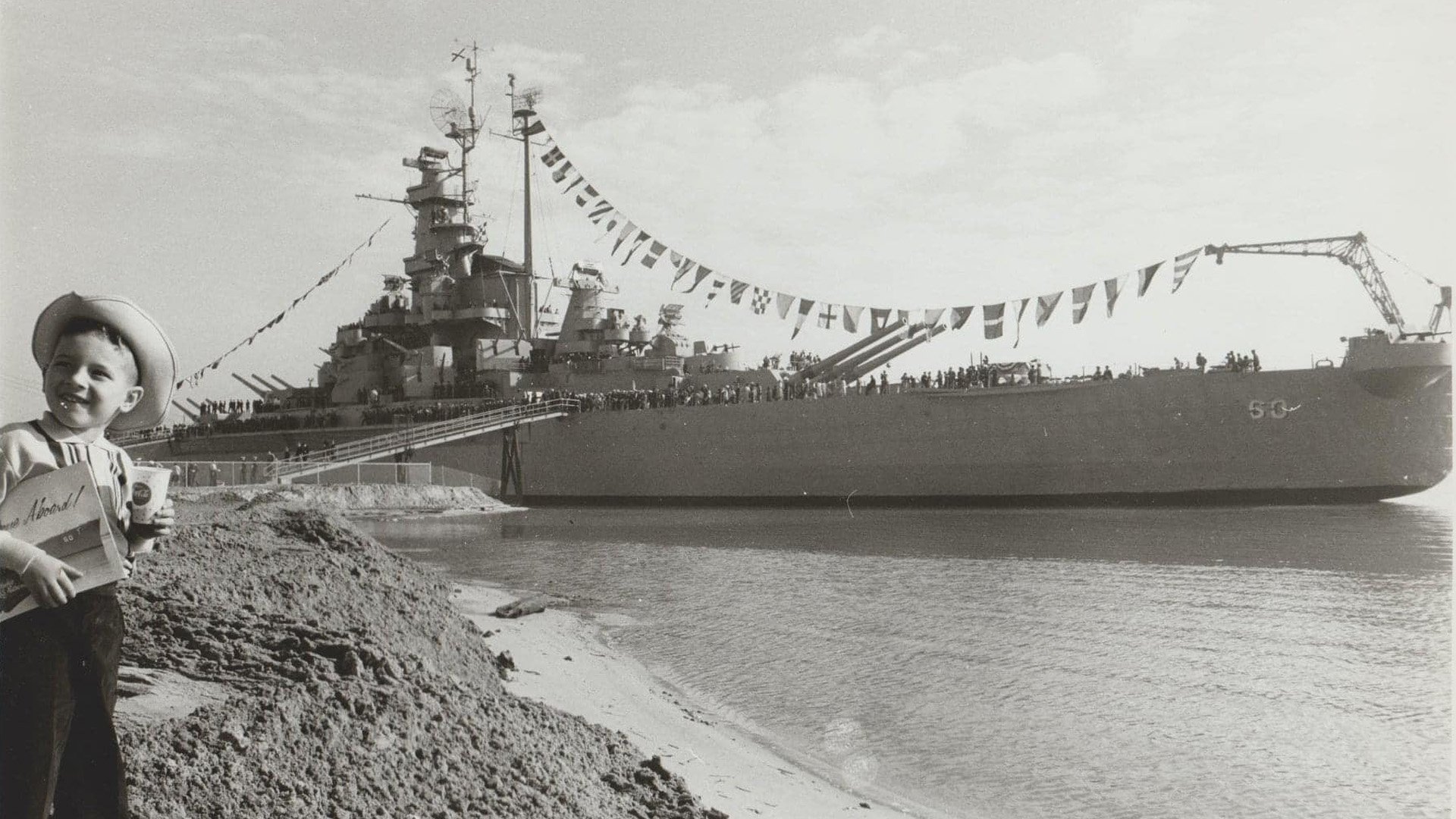
On Jan. 9, 1965, the USS Alabama Battleship Memorial Park opened to the public. Since this day, the site has welcomed over 18 million people to the park. Photo courtesy of the USS Alabama Battleship Memorial Park/Facebook.
The keel laying that marked the official start of construction of the Alabama took place on Feb. 1, 1940, at the Norfolk Naval Yard in Portsmouth, Virginia. Two years later, the ship was “launched” — i.e., transferred from land to water. And six months after that, on Aug. 16, 1942, it was commissioned into service.
The 35,000-ton Alabama and some 2,500 crew members patrolled the North Atlantic and South Pacific from 1943 until the end of the war. The ship was decommissioned on Jan. 9, 1947, and then assigned to the US Pacific Reserve Fleet in Bremerton, Washington. It remained in reserve until being removed from the naval vessel registry in June 1962.
Related: Lenah H. Sutcliffe Higbee: The US Navy’s First Living Female Navy Cross Recipient
How Many Battle Stars Did the USS Alabama Acquire?
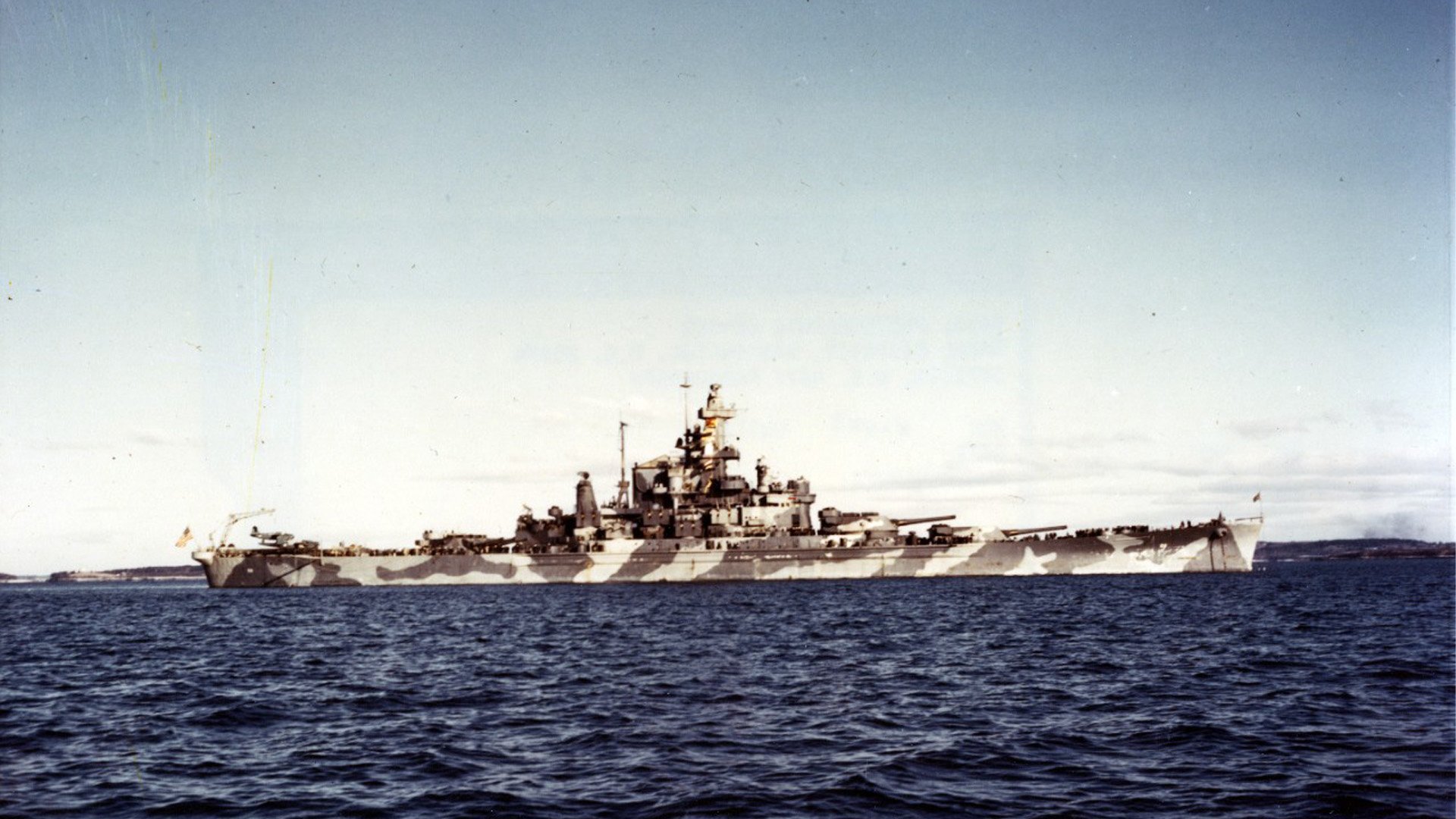
USS Alabama (BB-60) in Casco Bay, Maine, during her shakedown period, circa December 1942. Photo courtesy of the Naval History and Heritage Command.
The USS Alabama earned an impressive nine battle stars during its short operational lifespan. All were earned in the South Pacific, including at crucial locations such as the Gilbert Islands, Saipan, and Okinawa. The Alabama also helped escort the American fleet into Tokyo Bay where Japanese officials formally signed their surrender to the Allies aboard the USS Missouri on Sept. 2, 1945.
At the war’s end, the Alabama participated in Operation Magic Carpet, the largest combined air and sealift ever orchestrated. The process of returning 8 million American service members scattered across four continents was no simple task. Several aircraft carriers, destroyers, and battleships rose to the challenge. The “Heroine of the Pacific” did her part, returning approximately 3,700 veterans back to the homefront.
Related: Why the US Navy Annihilated Its Own Battleships With Atomic Bombs
Where Is the USS Alabama Now?
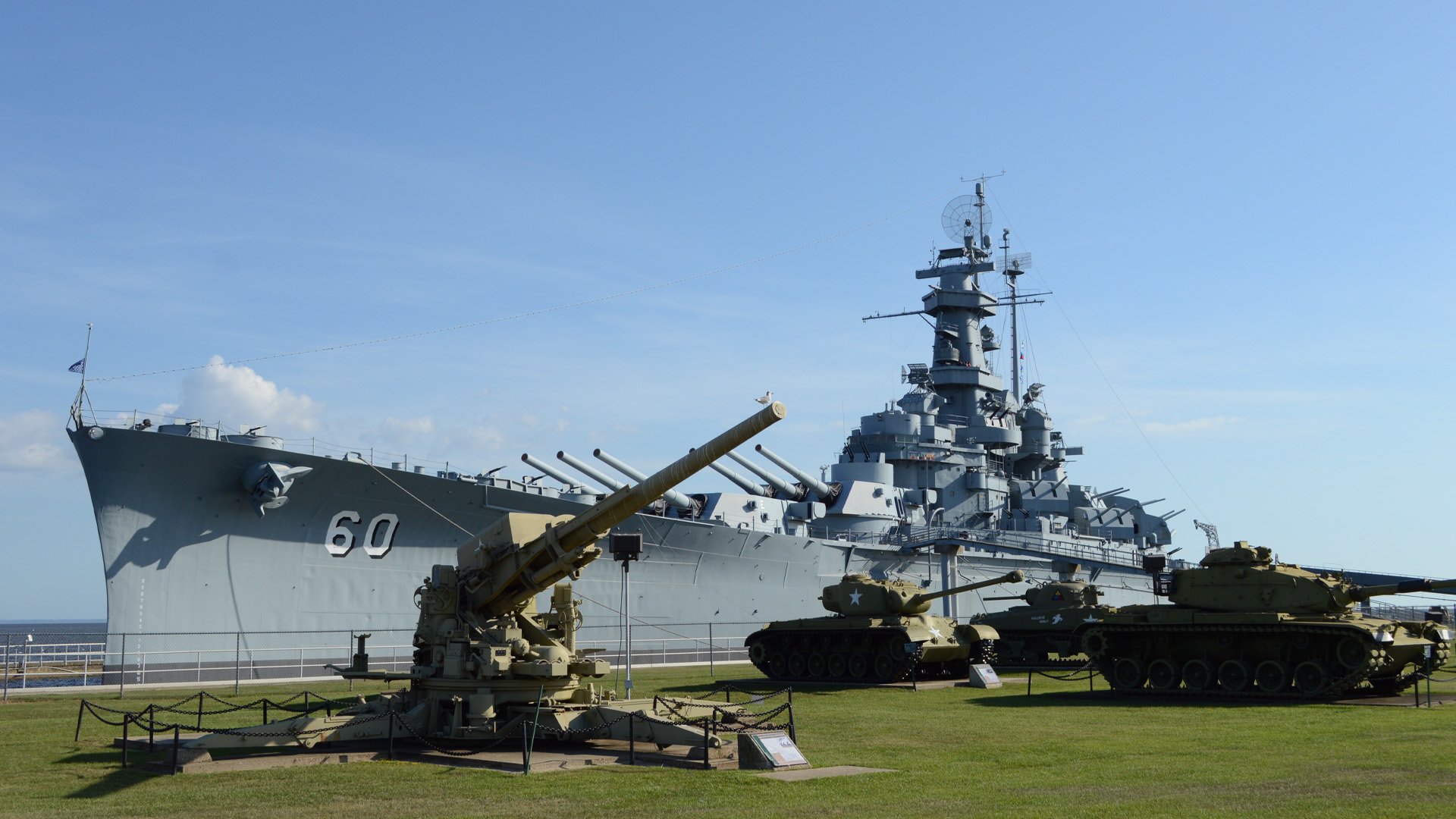
The USS Alabama Battleship Memorial Park also includes tanks, artillery pieces, aircraft, and more. Wikimedia Commons photo.
Following the war, hundreds of battleships, including the USS Alabama, were deemed unnecessary to the peacetime fleet and selected to be scrapped for parts. But before the legendary battleship reached the scrapyard, a group of historians and residents of the deep-water port of Mobile, Alabama, petitioned to bring her home. Even schoolchildren raised money for the effort — a whopping $100,000 amassed in nickels and dimes. Eventually, the USS Alabama Battleship Memorial Park came to fruition. Today it serves as a living memorial honoring those who served on board the ship during WWII.
Related: The USS Gerald Ford Is More Than Just a $13 Billion Boat
What Else Is at the USS Alabama Battleship Memorial Park?
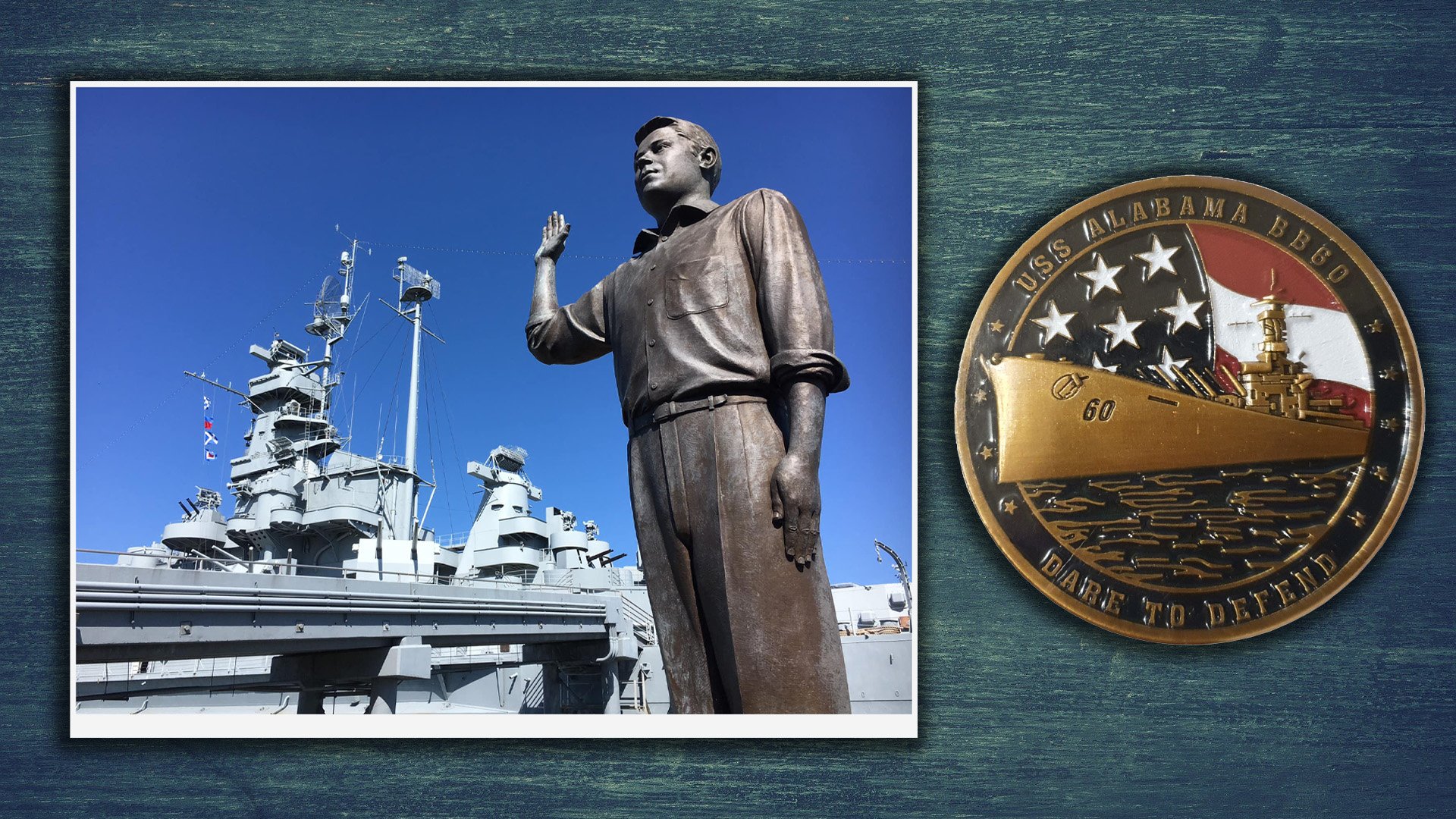
The newest addition to the park is a bronze sculpture called The Recruit. The sculpture depicts a young man raising his right hand to enlist in the US armed forces. Photo courtesy of the USS Alabama Battleship Memorial Park. Composite by Coffee or Die Magazine.
While the Mighty A is the prize attraction at the USS Alabama Battleship Memorial Park, the site houses plenty of other neat war relics worth checking out. Among the most battle-hardened warships present is the submarine USS Drum. During WWII, the USS Drum earned 12 battle stars and sank 15 enemy ships.
The park also features an exhibit called the Medal of Honor Aircraft Pavilion, which was named to honor all 33 Medal of Honor recipients from the state of Alabama. Inside the pavilion is a Red Ball Express supply truck, there as a tribute to the Black troops who ran supplies to the front lines during WWII. Additionally, the pavilion contains a Red Tail P-51 fighter flown by the Tuskegee Airmen during the war, as well as an A-12 Blackbird spy plane that flew surveillance missions with the CIA.
Along the outskirts of the park are various military vehicles, artillery pieces, and memorials honoring service members from all military branches. Iconic WWII tanks such as the M4 Sherman and the M48A1 Patton are in the collection. The newest addition to the park is a bronze sculpture called The Recruit. The sculpture depicts a young man raising his right hand to enlist in the US armed forces. Following the unveiling on July 2, 2016, a new annual tradition began. Each year the USS Alabama Battleship Memorial Park holds a community-wide oath of enlistment ceremony.
For guests and visitors searching for information about ticket prices and other admissions-related queries, visit the USS Alabama’s official website here.
Read Next: The Red Ball Express: How African American Truck Drivers Supplied Patton’s 3rd Army in World War II

Matt Fratus is a history staff writer for Coffee or Die. He prides himself on uncovering the most fascinating tales of history by sharing them through any means of engaging storytelling. He writes for his micro-blog @LateNightHistory on Instagram, where he shares the story behind the image. He is also the host of the Late Night History podcast. When not writing about history, Matt enjoys volunteering for One More Wave and rooting for Boston sports teams.
BRCC and Bad Moon Print Press team up for an exclusive, limited-edition T-shirt design!
BRCC partners with Team Room Design for an exclusive T-shirt release!
Thirty Seconds Out has partnered with BRCC for an exclusive shirt design invoking the God of Winter.
Lucas O'Hara of Grizzly Forge has teamed up with BRCC for a badass, exclusive Shirt Club T-shirt design featuring his most popular knife and tiomahawk.
Coffee or Die sits down with one of the graphic designers behind Black Rifle Coffee's signature look and vibe.
Biden will award the Medal of Honor to a Vietnam War Army helicopter pilot who risked his life to save a reconnaissance team from almost certain death.
Ever wonder how much Jack Mandaville would f*ck sh*t up if he went back in time? The American Revolution didn't even see him coming.
A nearly 200-year-old West Point time capsule that at first appeared to yield little more than dust contains hidden treasure, the US Military Academy said.












